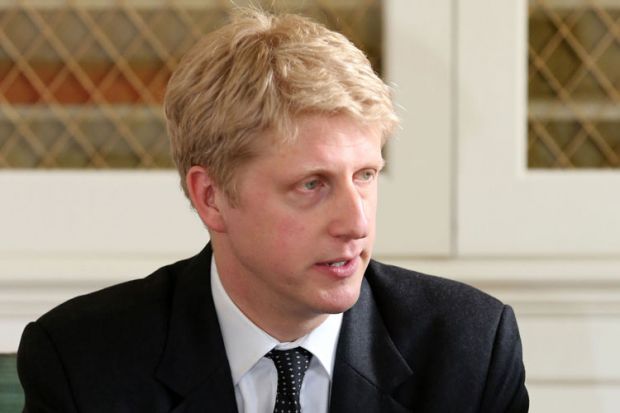Jo Johnson, the UK’s universities minister, has insisted that academic freedom is “better protected than ever” after a Conservative MP wrote to all higher education institutions in the country asking them to declare what they are teaching their students about Brexit.
Chris Heaton-Harris, MP for Daventry and a Eurosceptic, was accused by academics of “McCarthyite” behaviour after he wrote to vice-chancellors earlier this month asking for the names of any professors involved in teaching European affairs with reference to Brexit.
He also asked for a copy of each university’s syllabus and online lectures on Brexit, The Guardian reported.
The University and College Union called on Mr Johnson to condemn the letter.
“Our society will suffer if politicians seek to police what universities can and cannot teach,” said Sally Hunt, the union’s general secretary. “This attempt by Chris Heaton-Harris to compile a hit list of professors has the acrid whiff of McCarthyism about it, and Jo Johnson must disown it in the strongest terms.
“Our universities and colleges must lead the way in defending academic freedom, where received wisdom can be challenged and controversial ideas debated.”
In a tweet sent on 24 October, just hours after the story of the letter broke, Mr Johnson said that academic freedom has been “entrenched in statute” in the Higher Education and Research Act and is “better protected than ever”.
Academic freedom -which we've just entrenched in statute in Higher Ed &Research Bill 2017! - is core to success +better protected than ever
— Jo Johnson (@JoJohnsonUK) October 24, 2017
Last week, Mr Johnson announced that England’s new Office for Students, which will come into existence next year under the Higher Education and Research Act, could take action against any university that failed to protect freedom of speech with fines, suspension or, ultimately, deregistration.
Several academics responded to the tweet asking Mr Johnson to speak with Mr Heaton-Harris about academic freedom, while one scholar called for the Conservative whip to “apologise now or resign from the government”.
Alistair Jarvis, chief executive of Universities UK, asked for Mr Heaton-Harris to explain “his motives” for asking universities to share names of their European studies professors, their course content and their lecture notes.
“This request suggests an alarming attempt to censor or challenge academic freedom,” he said. “It is essential that universities remain places where free speech flourishes.
“This means protecting independence in academic study, encouraging rigorous debate and providing opportunities to hear and challenge a diverse range of views.”
Jessica Cole, the Russell Group’s head of policy, added that universities are “independent of government, and detailed course content and hiring decisions are matters for individual institutions”.
“Whether academics supported leave or remain at the referendum has no bearing on their ability to deliver stimulating, challenging courses that include a full range of views and opinions on our relationship with Europe,” she said.
The Political Studies Association said it was "dismayed" to learn of the letter sent by Mr Heaton-Harris.
"Mr Heaton-Harris’s intentions for requesting this information, and what he intended to do with it once he received it is unclear. However, anything that could be interpreted as interference in the content of university curricula, or a questioning of the ability of professional university staff to teach it appropriately should be strongly resisted, not just by academics, but also by the public and its government," it said.
"We would welcome the opportunity to speak with Mr Heaton-Harris to learn more about his concerns and we would like to extend an invitation to him to attend any of our events and discuss this issue with our members."




